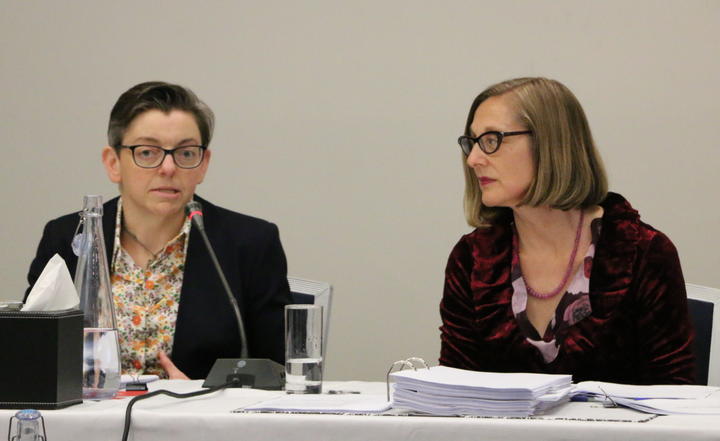Two lawyers who represent claimants who were abused while in state or faith-based care say the number of people who have come forward is growing.
The Royal Commission of Inquiry into Abuse in Care has entered into its second week of hearings being held in Auckland.
Published in
Radio New Zealand
Cooper Legal represents people making civil claims against state agencies and faith-based institutions for abuse they suffered in care as children or vulnerable adults.
The legal firm represents 1250 clients and has 1400 open files, a number which is growing.
Sonja Cooper said the ages of the claimants ranged from 18 to 80.
About 1100 claims have been settled with the ministries of social development, health and education, as well as faith-based institutions, with payments so far totalling $22,775,000.
“No survivor to date has received adequate compensation for what they experienced.”
Ms Cooper said that by far the most common complaints made by claimants were severe physical assaults at the hands of staff and other patients and sexual violation and abuse.
She told the commission that electroconvulsive therapy (ECT) was used as a punishment, and this also included patients being placed in the room to watch ECT being administered to frighten them into submission.
Ms Cooper said complainants talked of traumatic incidents, such as being hosed down by nursing staff, being threatened with a lobotomy, and being told that they would never leave the hospitals.
She cited one punishment known as the concrete-pill where people were held up by their arms and legs and dropped head-first onto concrete.
Ms Cooper said there have been a number of examples of staff being shifted and in some cases promoted after accusations of abuse.
She said complaints were not dealt with properly, which exposed vulnerable children to further abuse.
Ms Cooper said police would take a very long time to investigate historic claims, because they were not deemed as important or as urgent as other cases.
She said other assaults took a more insidious form under the cover of medical examinations.
She gave the example of a doctor nicknamed Dr Cough who would line up boys in the institutions, or examine them individually, by removing their clothing and touching their genitals.
Amanda Hill, who is also a partner in Cooper Legal, told the Royal Commission that there was an ongoing culture of violence, coupled with an environment which prohibited narking or snitching.
She said the culture of violence included initiation beatings, which occurred at virtually every residence in the country.
Ms Hill said psychological abuse by staff members had a long-term effect on many survivors.
She said the survivors say they were constantly taunted and told by staff members that they were worthless, useless and would end up in prison.
Residential schools were spread across the country and many have now closed. Ms Hill told the commission that one of them, Waimokoia in Auckland, catered for children who exhibited serious maladjustment, as it was described, over a number of years.
The children were aged between seven and 13, and male students outnumbered female.
Ms Hill said the children who lived at Waimokoia from the 1970s through to the 2000s complained of sexual and physical abuse by staff, and sexual and physical abuse between residents.
She said this was often undetected or ignored by staff.
Ms Hill said excessive use of physical restraints included prolonged time in Time-Out rooms, described by complainants as being held in a concrete box under the dormitory, which constantly smelt of urine.
She said it was an example of excessive use of cruel and meaningless punishments and activities to manage behaviour.
Ms Hill said what might have been regarded as the practice or policy of the day does not make it right.
Where to get help:
NZ Police
Victim Support 0800 842 846
Rape Crisis 0800 88 33 00
Rape Prevention Education
HELP Call 24/7 (Auckland): 09 623 1700, (Wellington): be 04 801 6655 – 0
Safe to talk: a 24/7 confidential helpline for survivors, support people and those with harmful sexual behaviour
By Andrew McRae
Published in Radio New Zealand
4 November 2019



